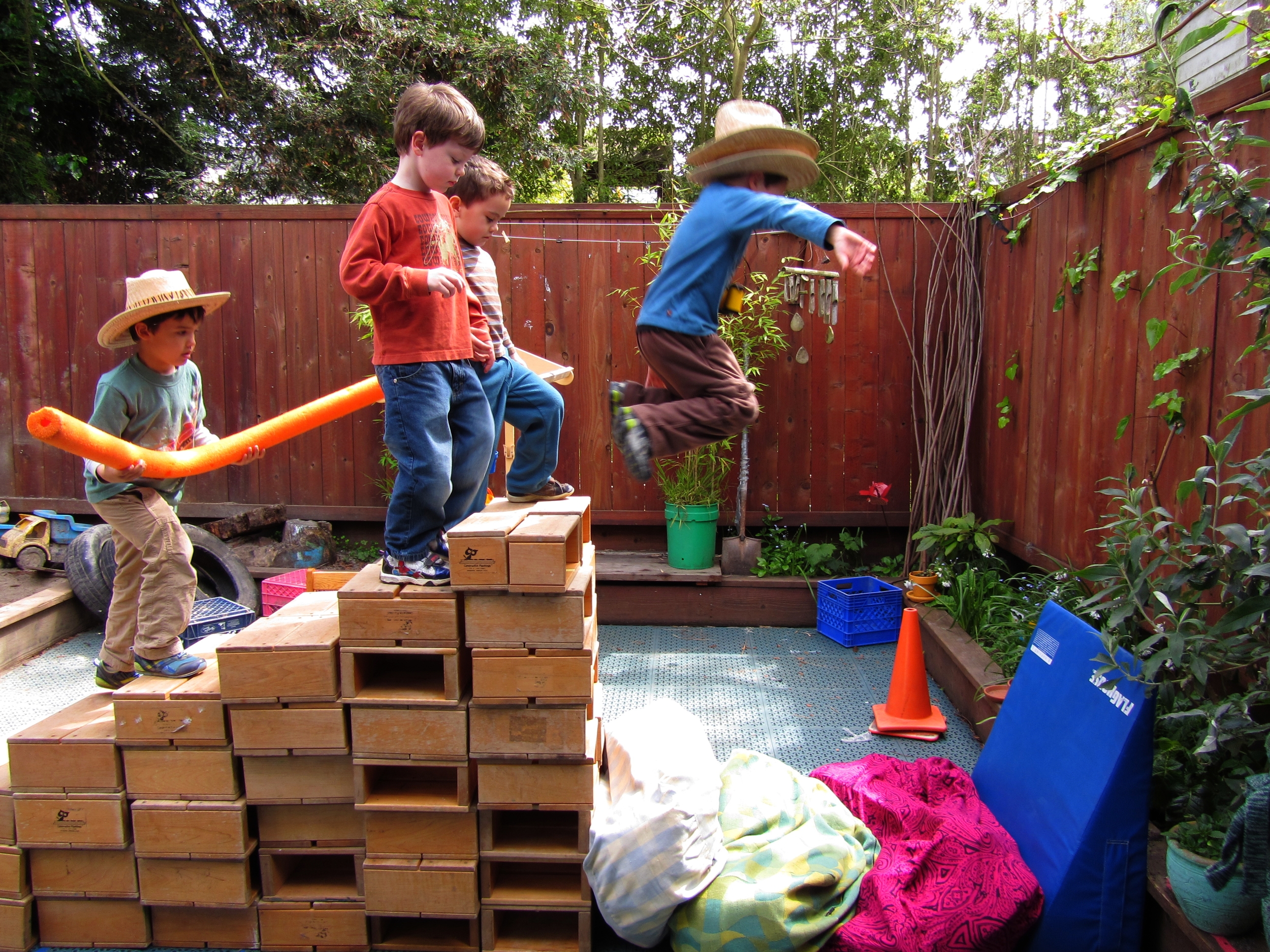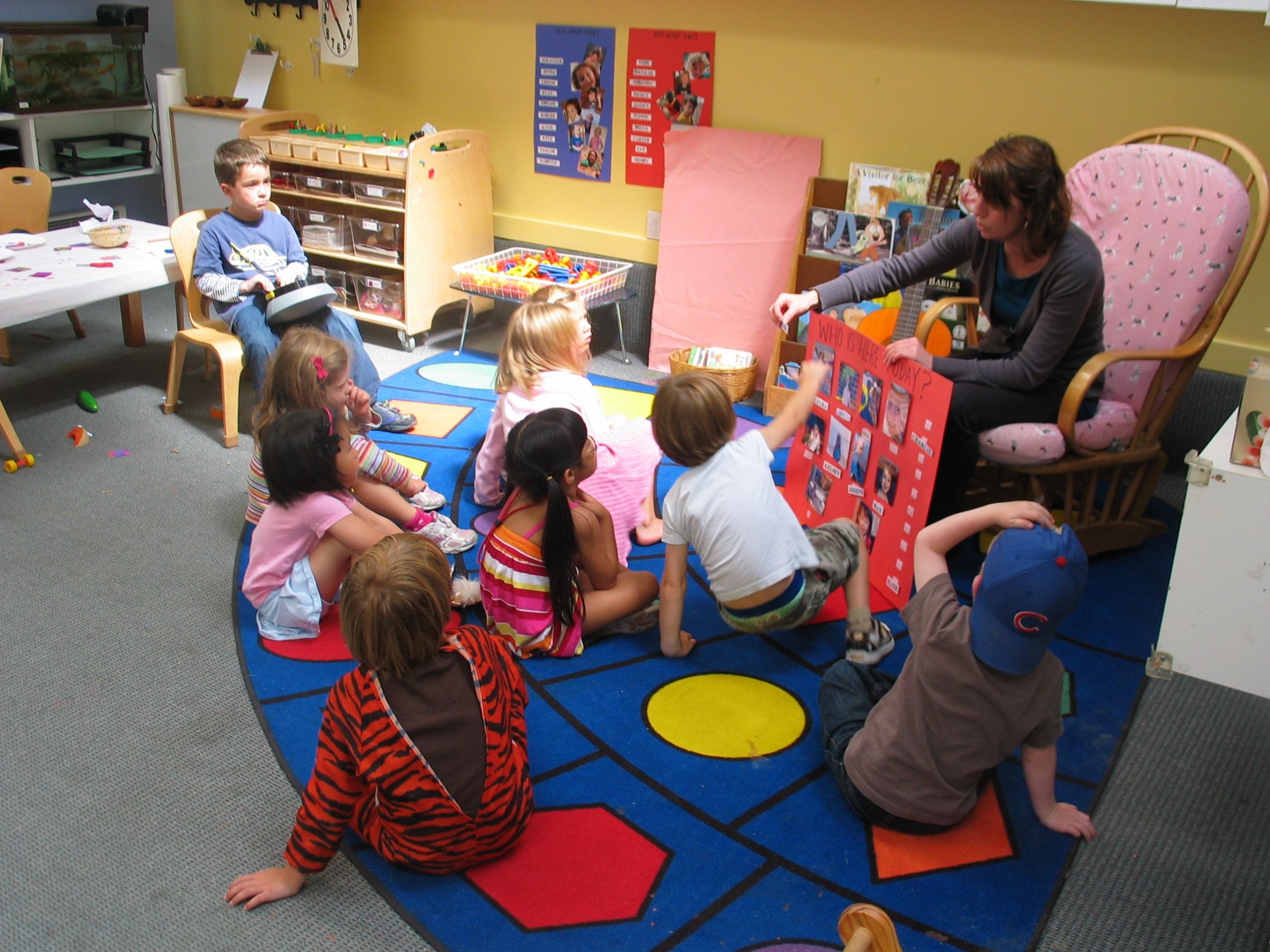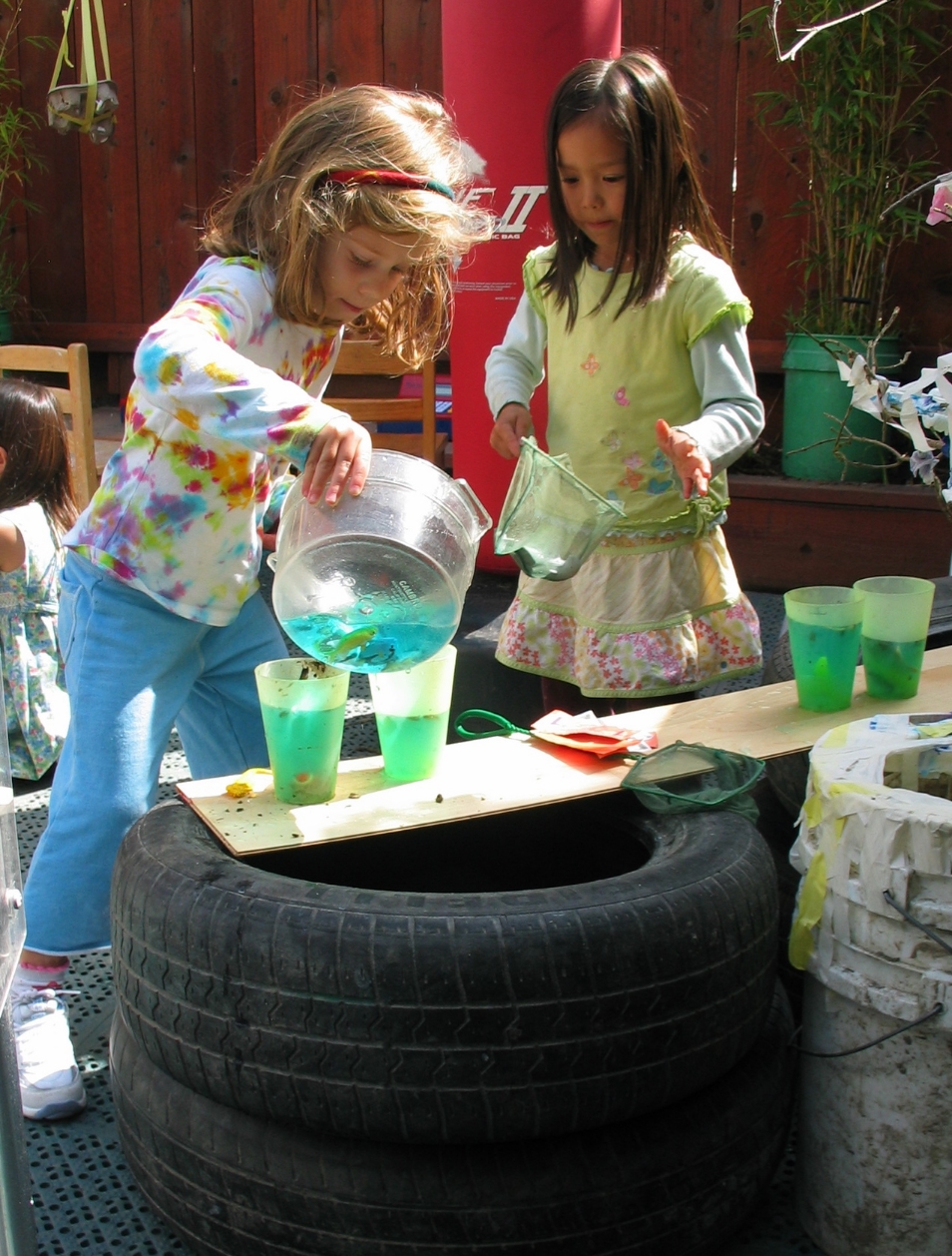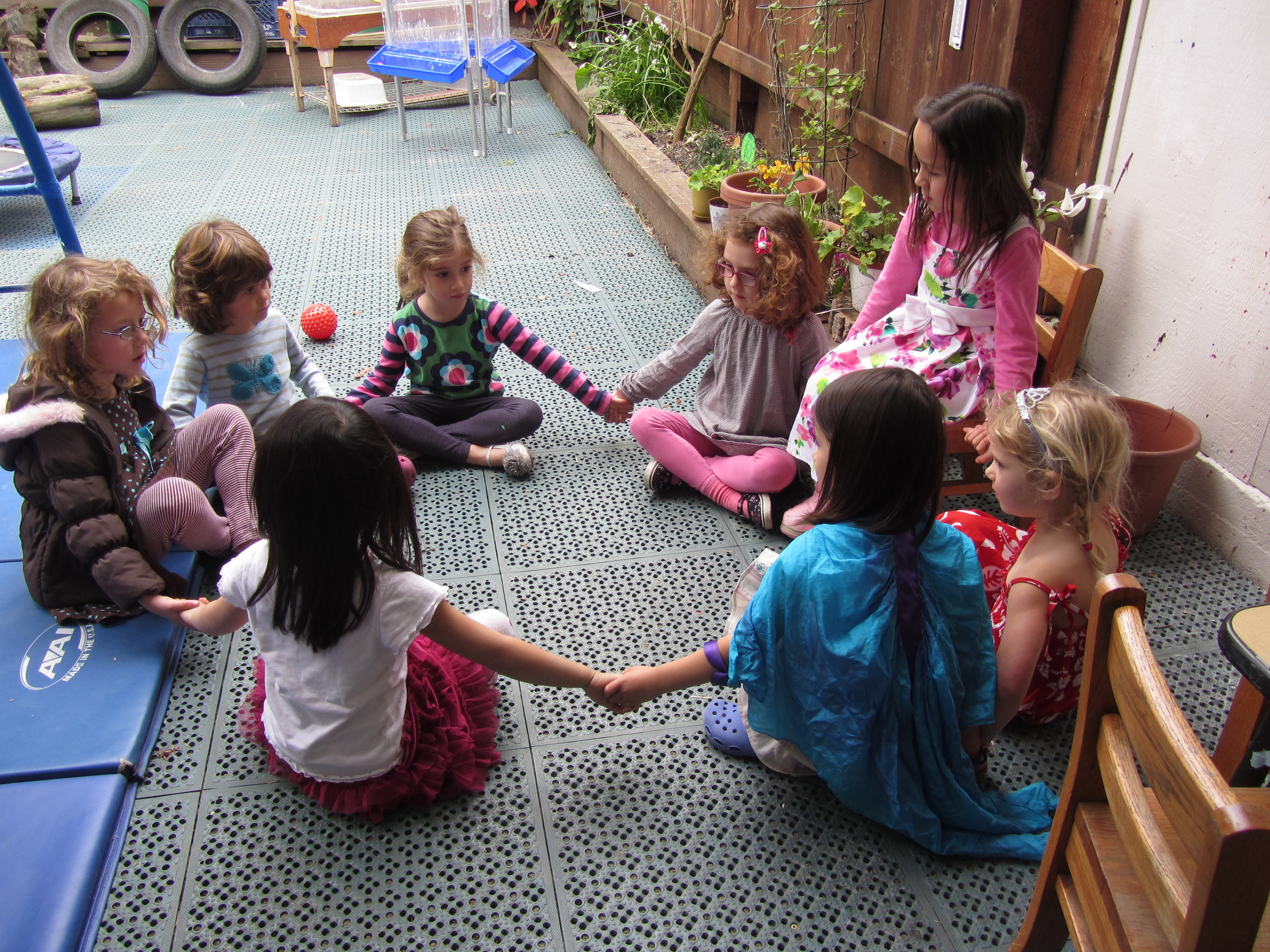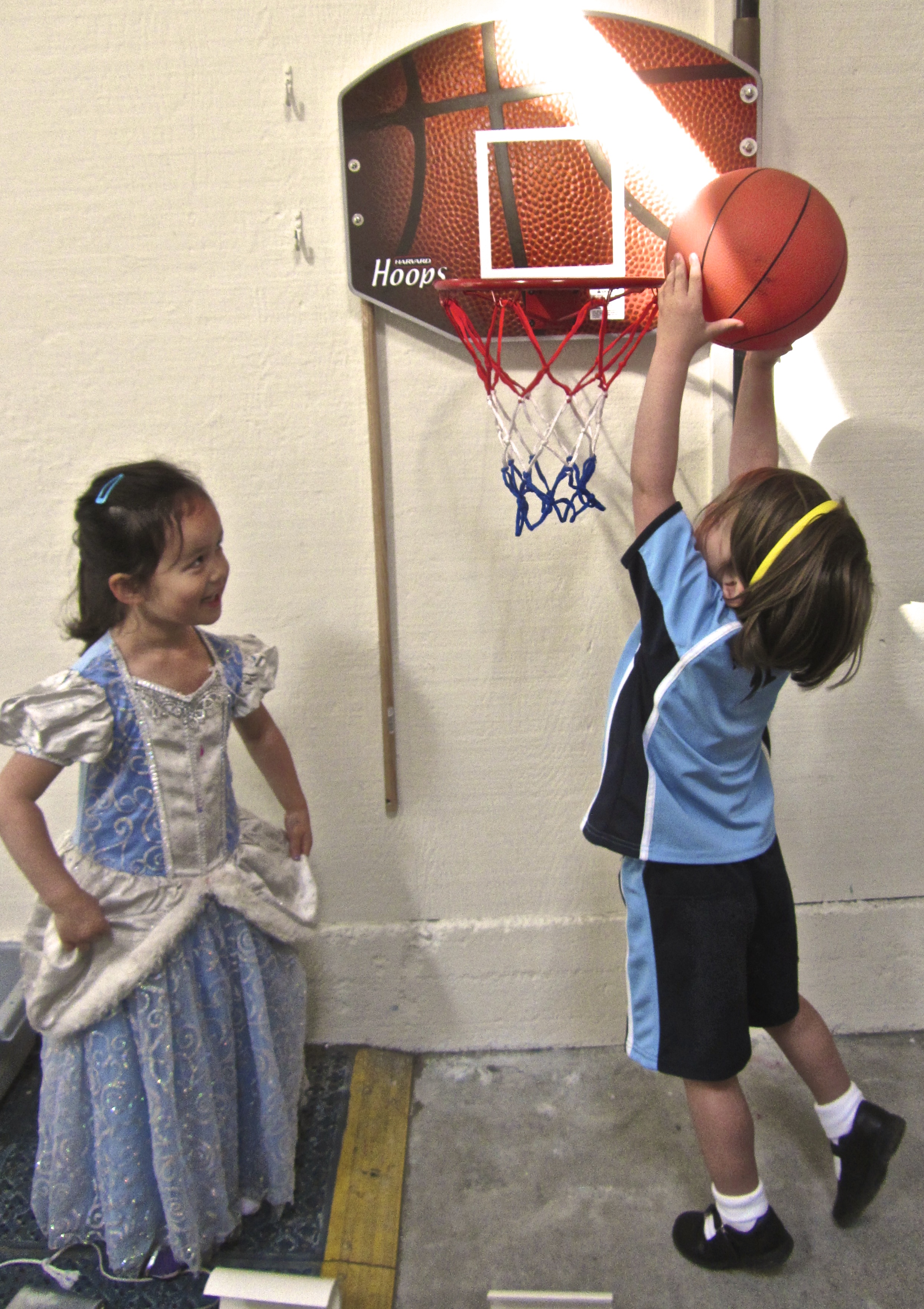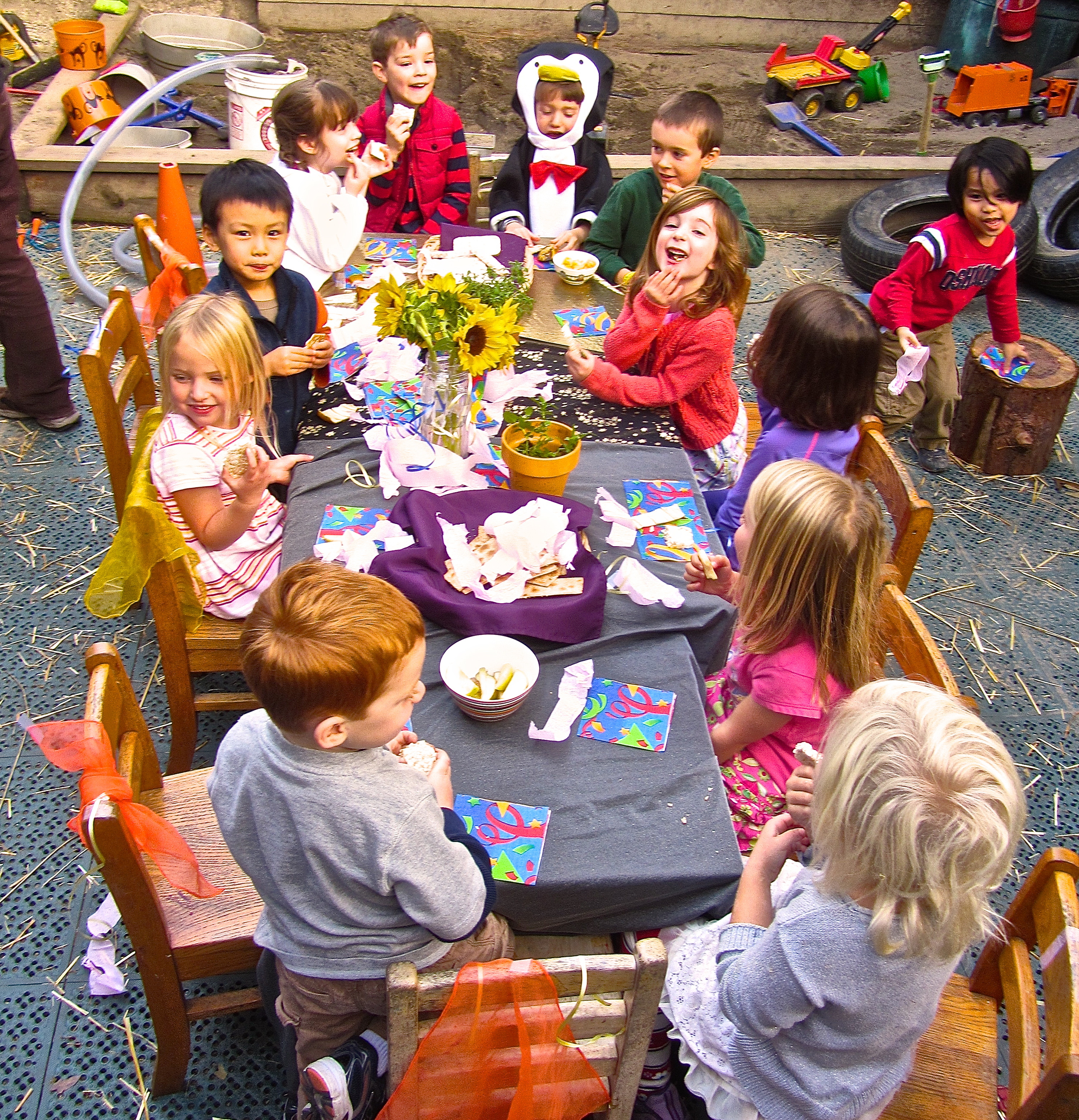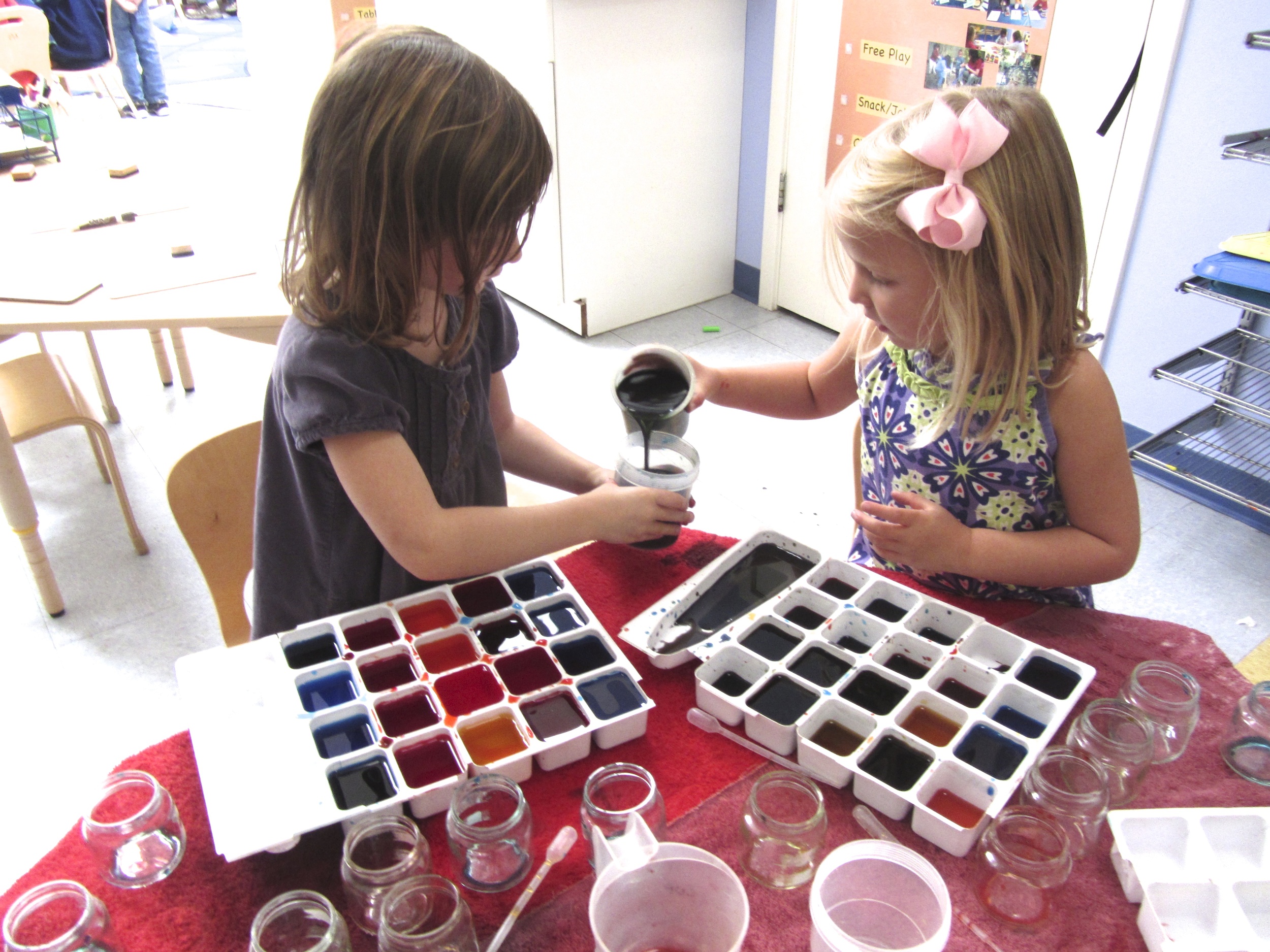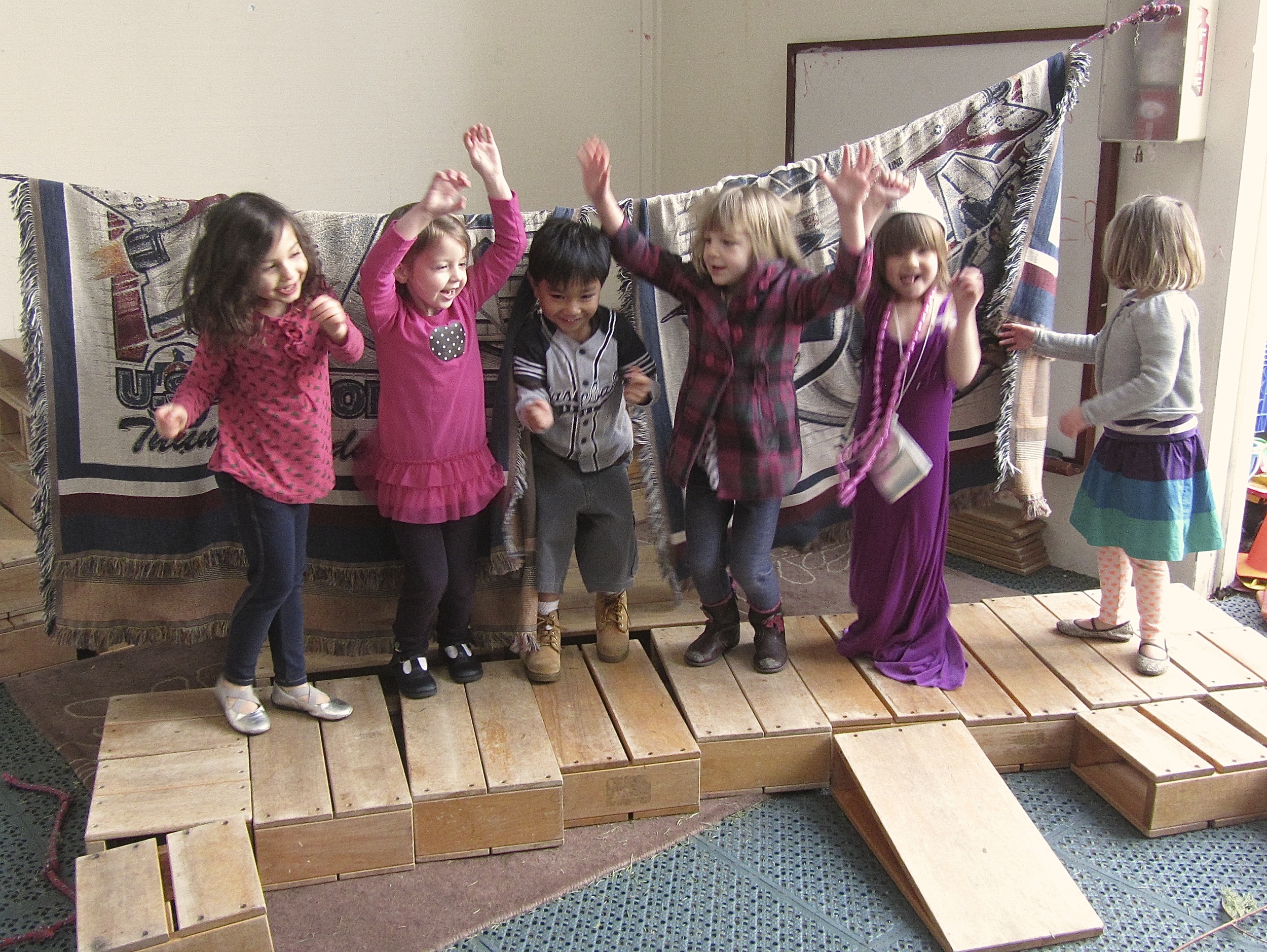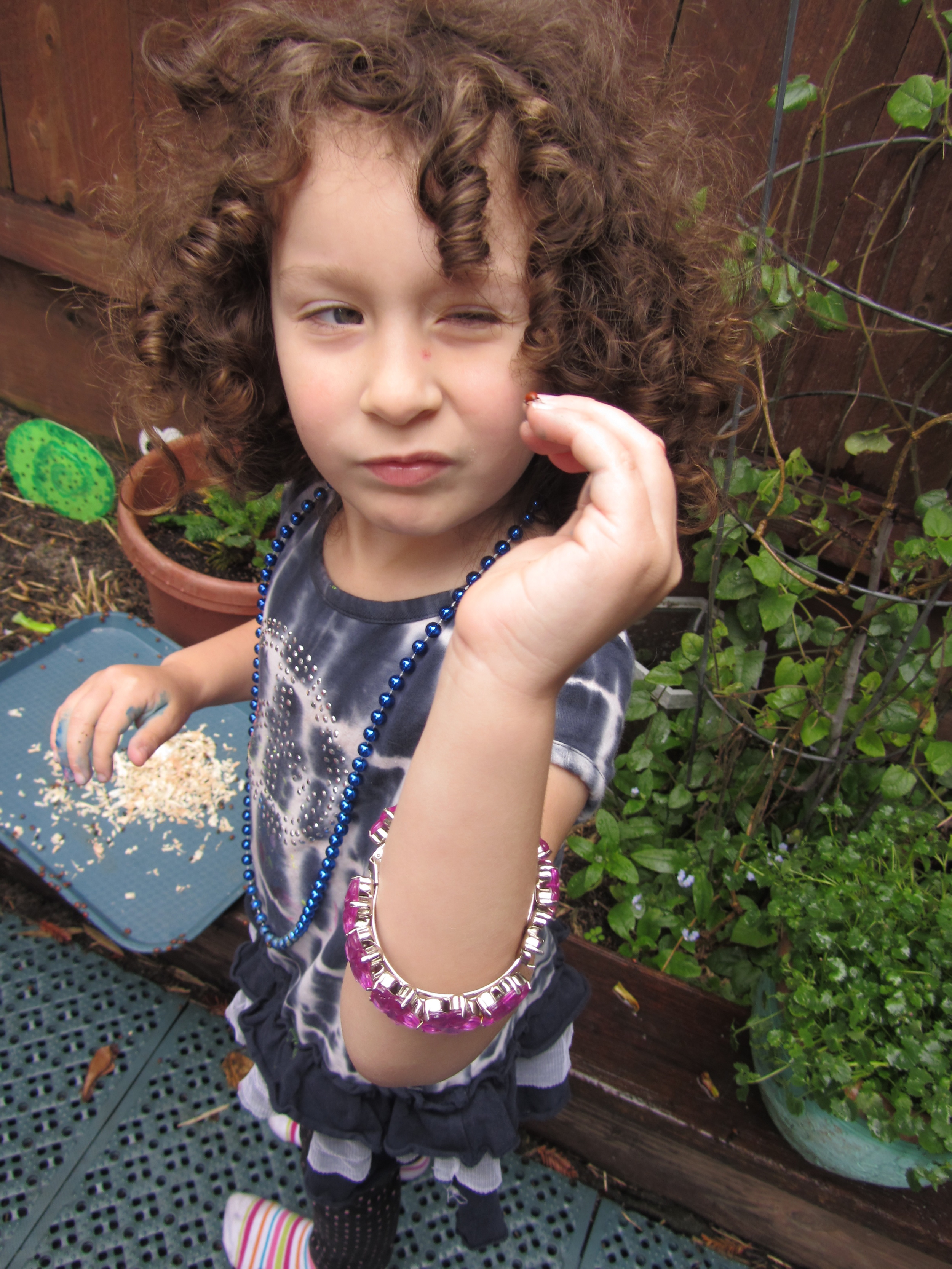
Pre-Kindergarten
Students in the Pre-Kindergarten class at PPNS continue to enjoy a great deal of choice over how they organize their time and construct their learning. At the same time, teachers help them learn to weave more sophisticated planning, collaborating and investigating into the school experience. Ideas, observations and questions inspire long-term projects that promote habits of inquiry, conceptual capacities, and foundational science, math, and literacy skills. Social and emotional learning and problem solving fold into the more focused, interdependent learning environment, as do the group times, which begin to function as meetings.
The teachers plan "choice time" based on the needs of the individual children and the group. These activities may range from drawing about a particular topic to building more complicated block structures, to playing a board game with a new person. During this part of the day, children practice important skills like risk-taking, perseverance, and persistence. As children extend and deepen their place in a collaborative learning community, the confidence and self-awareness they gain, along with knowledge and skills, forms a powerful bridge between the play-based nature of early learning to the elementary education years.
Daily Schedule
11:45 AM -12:45 PM Optional Lunch
12:45-1:00 PM Arrival
1:00-1:30 PM Free Play
1:30-2:15 PM Choice Time
2:15-3:15 PM Free Play Time
3:15-3:35 PM Circle Time, Clean Up
3:35-3:45 PM Last Story
4:00 PM Dismissal
4:00 - 5:00 PM Optional After Care

